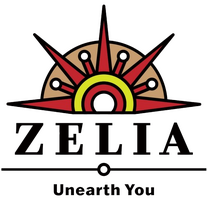Healing Centered Practice Training
What’s the difference between Compassionate Self Archeology™ and Healing Centered Practice training?
The Healing Centered Practice training is for groups that are focused primarily on their well-being in their careers. The foundational theory of Compassionate Self Archeology™ is the basis for HCP training, but the focus is on how our workplace pressures have unique characteristics, especially for those in caring professions.
What is meant by “care oriented professions”?
Care-oriented professions refer to careers focused on supporting, healing, guiding, or nurturing others' well-being—whether physically, emotionally, or socially. These professions are often centered around compassion, service, and interpersonal connection, requiring a high level of empathy, emotional resilience, and ethical responsibility. Care-oriented professionals often face high emotional demands, secondary trauma, and burnout risks, making self-care, emotional regulation, and healing-centered practices essential for longevity and effectiveness in their roles.
These include the fields of healthcare, mental health, education, youth development, crisis intervention & advocacy, community and human services, and public safety and first responders.
Is the Healing Centered Practice training only for care oriented professionals?
Not necessarily. The tools can be applied to many work environments. Contact us to chat about seeing if this training is the right fit for your needs.
Does this training offer CEUs?
Not at this time
What’s the difference between attending the professional training and just using the online resources?
The professional training is an immersive experience, whereas the online resources are for review and as a quick primer for new staff, before they’ve had a chance to attend the 3-day training for themselves.
3 days is a lot of time for my staff to be away from their jobs. Can I get a shortened version?
We have played around with various configurations and have found that the greatest impact is when cohorts are able to complete the 3 days consecutively. This allows for the participants to fully immerse into the content and harness the depth in order to more effectively and efficiently move cohorts through the process. Yes, this is time away from staff’s daily responsibilities, and it is also an investment in your staff’s well being both personally and professionally – leading to more effective collaboration among individuals and teams, higher quality client care, a reduction in workplace conflict, and increased morale. That said, we are happy to work with you to see how to best fit your needs into our scheduled trainings, and that may mean splitting up your staff into separate cohorts.
___MESSAGE___
___MESSAGE___

